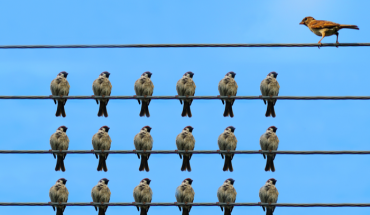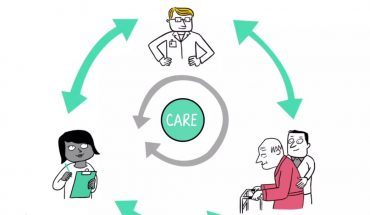The BBC2 series, Babies – Their Wonderful World, which airs for the next few weeks, draws on a wealth of recent and historical evidence to examine key developmental milestones in the first two years of life. We’ll look at exactly what happens when a young child has a tantrum from the first physiological response to the tipping point when a temper flash can resolve or become unstoppable.
In my professional life, I am a paediatrician at a London Teaching Hospital and a member of the Royal Society of Medicine’s Paediatrics & Child Health Section. One of the most important things that we know about early brain development is that the first two years of life are crucial. Babies aren’t just eating and sleeping machines. Instead, we know they are like mini computers taking in everything that is going on around them.
One of the most important things that we know about early brain development is that the first two years of life are crucial. Babies aren’t just eating and sleeping machines. Instead, we know they are like mini computers taking in everything that is going on around them.
In the first few months of life, personality traits start to show like caution, or bravery.
Babies who are not exposed to enough stimulation in their environment do not have the change to develop the ‘hardware’ they need to be effective adults. Our brains are literally built on experience from the moment we are born. Experiences help build strong neural pathways between brain cells and allow brain material to expand. Stress and neglect can also inhibit brain growth because high levels of the stress hormone cortisone inhibits brain cells, although ironically it may encourage the over development of areas that are involved in the fight or flight response, increasing the likelihood that an individual will be prone to anxiety.
When it comes to smart phones and screens in baby cots, the issue is not so much that technology inhibits brain growth but that it causes a problem when it is a stand-in for parental involvement and love. That’s when we see problems when mobile phones and screens are used as babysitters for long periods while carers divert their attention elsewhere. From observational studies, it seems that it interferes with normal attachment and socialisation as well as inhibiting sleep – and the brain needs sleep for normal growth.
Babies who have siblings may benefit from socialisation and to a baby, nothing is funnier than a sibling. But single children can also be stimulated in a busy, challenging environment where they can still get this type of input including in a nursery environment.
Babies who have siblings may benefit from socialisation and to a baby, nothing is funnier than a sibling. But single children can also be stimulated in a busy, challenging environment where they can still get this type of input including in a nursery environment.
The strongest evidence we have about developmental milestones early in life surround attachment theory. It has been shown time and time again that strong initial attachment bonds are crucial to making a happy secure adult. This is why paediatricians advocate close skin to skin contact in the early days and weeks of life. And we know that babies who are separated from a strong parental figure early on can have all sorts of emotional and social problems later in life.
However, that figure does not have to be the parent but can be someone from an extended family or even the community. It is really helpful to look at different cultures and how they parent their kids – there isn’t a one perfect solution and it can be done in different ways. In the west, there is a fetishisation of biological bonds, but adopted or looked after children can benefit from this strong bond as long as it includes love and attention.
- Babies – Their Wonderful World - 27th November 2018








Hey Guddy , Thanks for sharing your experience !